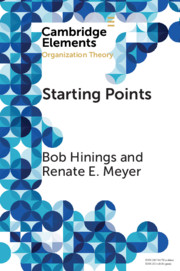Refine search
Actions for selected content:
1 results

Starting Points
- Intellectual and Institutional Foundations of Organization Theory
-
- Published online:
- 27 July 2018
- Print publication:
- 16 August 2018
-
- Element
- Export citation
